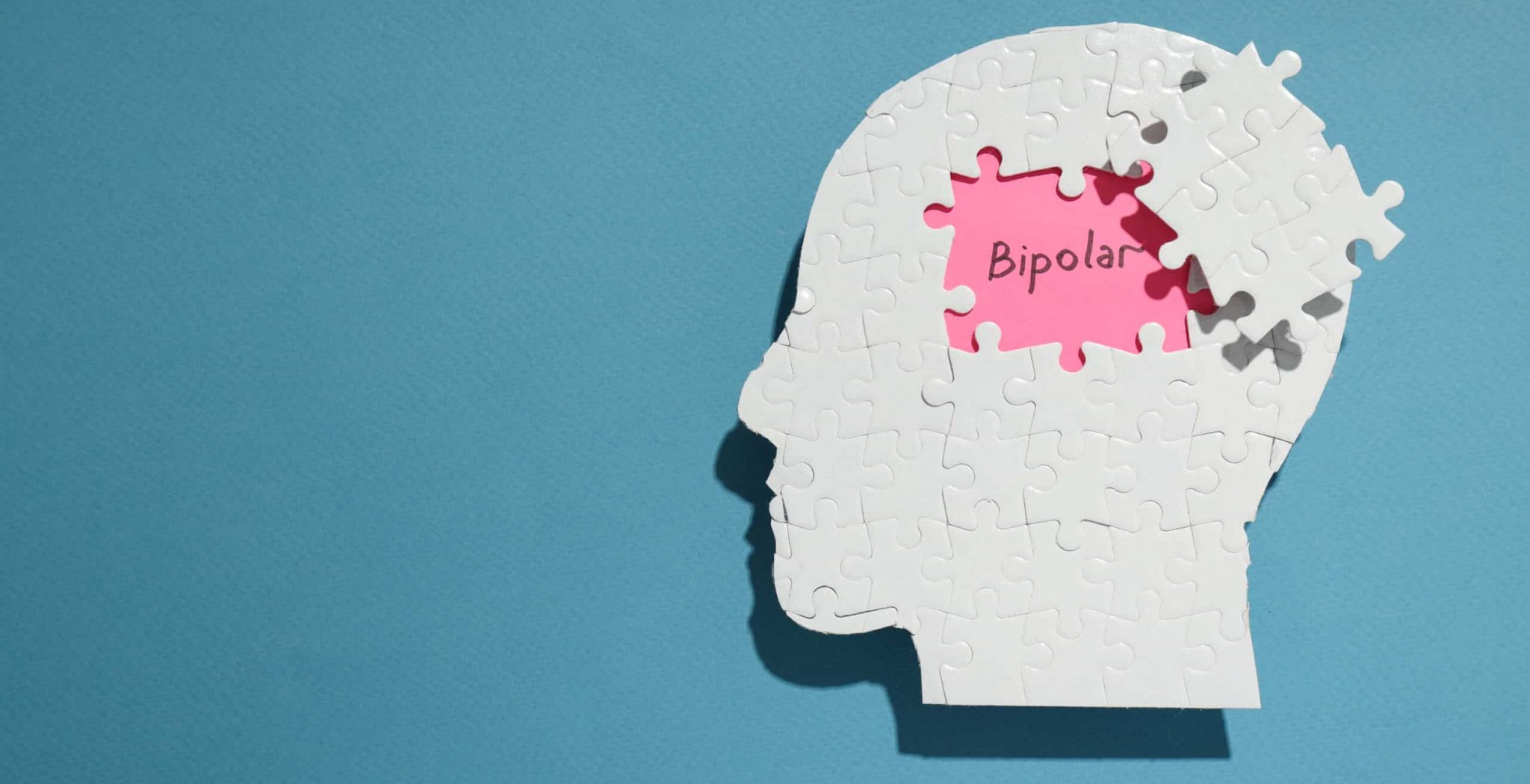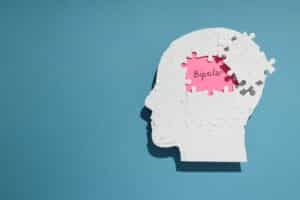Bipolar disorder, a mental health condition marked by extreme mood swings that include emotional highs (mania or hypomania) and lows (depression), affects millions of individuals worldwide. Understanding how a person with bipolar thinks is crucial for providing adequate support and treatment, and it is a key focus at Southern California Sunrise Recovery Center. Located in the heart of Orange County, CA, our center specializes in offering compassionate, comprehensive care to those living with bipolar disorder, integrating the latest research and therapeutic techniques to tailor treatment plans that address the unique thought patterns and challenges of each individual. In this article, we’ll delve into the thought processes associated with bipolar disorder, aiming to shed light on this complex condition and how it can be managed effectively, enhancing our commitment to fostering resilience and recovery in our community.
Understanding Bipolar Disorder
Before discussing the cognitive aspects of bipolar disorder, it’s essential to understand its two main phases: mania (or hypomania) and depression. These phases can affect a person’s thinking, feelings, and behavior in distinct ways, leading to significant challenges in daily life; recognizing the impact of these phases on how a person with bipolar thinks is crucial for tailoring effective treatment strategies and support systems. At Southern California Sunrise Recovery Center, we emphasize a holistic approach to treatment, acknowledging the profound influence of these mood states on cognitive processes and overall well-being, aiming to provide comprehensive support for those navigating the complexities of bipolar disorder.
Manic Phase
During a manic phase, individuals may experience an overabundance of energy, euphoria, and inflated self-esteem, profoundly affecting their cognitive processes. How a person with bipolar thinks during this time can be characterized by several distinct patterns:
- Rapid Thoughts: Thoughts may race uncontrollably, making it hard to focus or follow conversations, often leading to scattered or fragmented communication.
- Overconfidence: People often have an inflated sense of self and abilities, leading to unrealistic planning or goal-setting. This may result in frustration or failure when expectations are not met.
- Impulsivity: Impulsive decision-making can lead to increased risk-taking behaviors, including spending sprees or reckless driving, which can have harmful consequences.
Understanding these cognitive tendencies during the manic phase is crucial for developing effective management and intervention strategies. At Southern California Sunrise Recovery Center, we focus on recognizing these signs early, providing individuals and their families with the tools needed to navigate the complexities of bipolar disorder. This insight is integral to our approach, helping to mitigate the impact of the manic phase and fostering a path towards stability and health.
Depressive Phase
During a depressive phase, individuals may face overwhelming feelings of sadness, hopelessness, and a lack of energy, profoundly impacting their day-to-day life and how they perceive themselves and their future. The thought patterns during this phase can include:
- Negative Outlook: Pervasive feelings of worthlessness, guilt, and pessimism about the future dominate the person’s thinking.
- Difficulty Concentrating: Making decisions or focusing on tasks becomes challenging.
- Self-Doubt: Individuals may question their abilities, decisions, and worth, which can lead to decreased motivation and withdrawal from social activities.
Understanding these depressive thought patterns is essential for providing empathetic and effective care. At Southern California Sunrise Recovery Center, we prioritize addressing these cognitive challenges through tailored therapeutic interventions, aiming to instill hope and promote resilience among individuals experiencing the depressive phase of bipolar disorder. Our holistic approach encompasses strategies designed to enhance self-esteem, improve concentration, and foster a more positive outlook, supporting our clients on their journey toward recovery and well-being.
Navigating the Cognitive Landscape of Bipolar Disorder
At Southern California Sunrise Recovery Center, we understand that the cognitive aspects of bipolar disorder can be as debilitating as the emotional fluctuations characteristic of this condition. Individuals grappling with bipolar disorder may find themselves caught in ‘cognitive distortions,’ patterns of negative thinking that intensify the symptoms and challenges of their condition. Recognizing and addressing these thought patterns is a critical component of effective bipolar disorder treatment, highlighting the importance of cognitive approaches in comprehensive care strategies.
Cognitive Behavioral Therapy (CBT) is one of the therapeutic modalities we employ to empower individuals to identify and challenge their distorted thoughts. Our patients gain insights into how their thinking patterns can significantly influence their mood and behavior through CBT. This understanding equips them with practical strategies to manage their symptoms more effectively, fostering resilience and promoting recovery. Furthermore, CBT’s effectiveness in treating bipolar disorder underscores its value in our integrative treatment programs, making it a cornerstone of our approach to mental health care.
Mindfulness and Meditation form another essential part of our treatment paradigm, assisting individuals in anchoring themselves in the present moment. These practices are invaluable for mitigating the effects of racing thoughts and pervasive negative thinking patterns common among those with bipolar disorder. Incorporating mindfulness and meditation into our therapy sessions, we help our patients develop greater emotional regulation, achieve a sense of calm, and maintain a balance in their lives. The integration of these practices not only enhances the therapeutic experience but also contributes to lasting well-being and stability.
At Southern California Sunrise Recovery Center, we are committed to offering evidence-based, holistic treatment options tailored to the unique needs of each individual. Our focus on cognitive therapies like CBT, combined with mindfulness and meditation, underscores our dedication to addressing all aspects of bipolar disorder. By optimizing our treatment programs for the complexities of how a person with bipolar thinks, we strive to provide our patients with the tools and support necessary for a successful journey to recovery. Our expert team of mental health professionals is dedicated to fostering an environment of healing and growth, ensuring that each individual receives the compassionate care they deserve.
Support and Understanding of Bipolar
Living with bipolar disorder can be an isolating and daunting experience, often compounded by misconceptions and a lack of understanding from those who haven’t experienced the condition firsthand. At the Southern California Sunrise Recovery Center, nestled in the vibrant heart of Orange County, CA, we place a high premium on the power of support, education, and empathy in transforming lives. We believe that a deep understanding of how a person with bipolar thinks and feels is crucial in cultivating a supportive environment, not only within our treatment settings but also extending into the broader community, enhancing our approach to holistic mental health care.
Family therapy and support groups are pivotal components of our comprehensive treatment model, providing vital education and building a solid community of support around individuals with bipolar disorder. These initiatives are designed to demystify the condition for individuals living with it and their loved ones, enabling family members and friends to become key support pillars. By facilitating a deeper understanding of the unique challenges and thought processes associated with bipolar disorder, we empower those closest to our patients to contribute actively to the recovery journey.
Moreover, our commitment to fostering an inclusive and empathetic community extends beyond our immediate treatment programs. We actively engage in outreach and education efforts aimed at destigmatizing mental health issues, particularly bipolar disorder, in the broader community. This helps break down barriers to seeking help and promotes a more informed and compassionate society.
At Southern California Sunrise Recovery Center, we are dedicated to providing a safe, nurturing, and understanding environment where individuals with bipolar disorder can thrive. Our holistic approach, encompassing medical, psychological, and communal support mechanisms, ensures that every aspect of our patient’s well-being is addressed. By optimizing our services for SEO with a focus on how a person with bipolar thinks and feels, we aim to reach and assist a broader audience, spreading awareness and fostering a more supportive community for those affected by bipolar disorder.
The Path Forward
Bipolar disorder is a lifelong condition, but with the proper treatment and support, individuals can manage their symptoms and lead fulfilling lives. At Southern California Sunrise Recovery Center, our multidisciplinary team of mental health professionals is dedicated to providing personalized care that addresses the unique needs of each individual. Through a combination of medication management, therapy, and holistic approaches, we help our patients navigate the complexities of bipolar disorder, including understanding how they think and process the world around them.
We understand how a person with bipolar thinks is crucial for effective treatment and support. We can offer more compassionate and comprehensive care by recognizing the unique challenges associated with the condition’s fluctuating mood states. At Southern California Sunrise Recovery Center, we’re committed to helping our patients and their families understand and manage bipolar disorder, paving the way for a brighter, more stable future. With our tailored treatment plans and a supportive environment, we aim to empower our patients to achieve their wellness goals and enhance their quality of life.
For those seeking help or more information about bipolar disorder and its treatment, please reach out to Southern California Sunrise Recovery Center. Our team is here to provide the support and care you need to navigate the path to recovery. Don’t let bipolar disorder define your life; let us help you take the first step toward a new beginning. Contact us today to learn more about our services and how we can assist you or your loved one in the journey to recovery.
FAQs
What is bipolar disorder?
Bipolar disorder is a mental health condition characterized by significant mood swings, including periods of intense highs (mania or hypomania) and lows (depression). These mood swings can affect a person’s energy levels, behavior, and ability to function day-to-day.
How do I know if I or someone I love has bipolar disorder?
Diagnosing bipolar disorder involves a comprehensive evaluation by a mental health professional, which includes a detailed discussion of symptoms, a medical history review, and, sometimes, physical exams and tests to rule out other causes. Key signs include extreme mood swings, changes in sleep patterns, energy levels, behavior, and thought processes.
What treatments are available for bipolar disorder?
At Southern California Sunrise Recovery Center, we offer a holistic approach to treating bipolar disorder, including medication management, Cognitive Behavioral Therapy (CBT), mindfulness and meditation practices, and support groups. Our treatments are tailored to meet the unique needs of each individual.
Is bipolar disorder curable?
While bipolar disorder is a lifelong condition, its symptoms can be effectively managed with the right treatment plan. Many individuals with bipolar disorder lead productive, fulfilling lives with the support of medication and therapy.
How can family and friends support a loved one with bipolar disorder?
Family and friends can play a crucial role in the support system of someone with bipolar disorder. Educating themselves about the condition, offering emotional support, encouraging treatment adherence, and being patient are vital ways to help.
Can lifestyle changes complement bipolar disorder treatment?
Yes, lifestyle changes such as maintaining a regular sleep schedule, eating a balanced diet, engaging in regular physical activity, and avoiding alcohol and drugs can complement bipolar disorder treatments and help manage symptoms.
What makes Southern California Sunrise Recovery Center unique in treating bipolar disorder?
Our center stands out due to our multidisciplinary team of mental health professionals, personalized care plans, and the integrating of evidence-based therapies with holistic approaches. We focus on understanding how a person with bipolar disorder thinks and feels and offer compassionate, comprehensive care to help our patients navigate the complexities of the disorder.
How can I get started with treatment at Southern California Sunrise Recovery Center?
Getting started with treatment at our center is as simple as contacting us. You can contact us via our website, phone, or email to schedule an initial consultation. Our team is here to guide you through the process and answer any questions you may have.
Does insurance cover the treatment programs at Southern California Sunrise Recovery Center?
Many of our treatment programs are covered by insurance, but coverage can vary based on your provider and plan. Please contact us so we can assist you in verifying your insurance benefits and discussing payment options.
Resources
- Bipolar disorder. (n.d.). National Institute of Mental Health (NIMH). https://www.nimh.nih.gov/health/topics/bipolar-disorder
- Dailey, M. W., & Saadabadi, A. (2023, July 17). Mania. StatPearls – NCBI Bookshelf. https://www.ncbi.nlm.nih.gov/books/NBK493168/
- Depression. (n.d.). National Institute of Mental Health (NIMH). https://www.nimh.nih.gov/health/topics/depression
- Pietrangelo, A. (2023, October 31). What You Should Know About Mania vs. Hypomania. Healthline. https://www.healthline.com/health/mania-vs-hypomania
- Higuera, V. (2023, October 27). Everything you need to know about depression (Major depressive disorder). Healthline. https://www.healthline.com/health/depression
- Huang, Y., Zhang, Z., Lin, S., Zhou, H., & Xu, G. (2023). Cognitive Impairment Mechanism in Patients with Bipolar Disorder. Neuropsychiatric Disease and Treatment, Volume 19, 361–366. https://doi.org/10.2147/ndt.s396424
- Sanches, M., Bauer, I. E., Gálvez, J. F. P., Zunta-Soares, G., & Soares, J. C. (2015). The management of cognitive impairment in bipolar Disorder. American Journal of Therapeutics, 22(6), 477–486. https://doi.org/10.1097/mjt.0000000000000120
- Holland, K. (2023, January 25). Everything you need to know about bipolar Disorder. Healthline. https://www.healthline.com/health/bipolar-disorder







